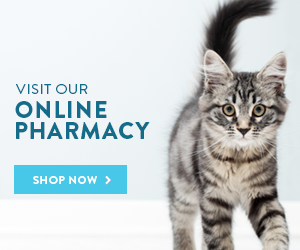
Caring For New Family Pets During the New Year
Have you recently added a pet to your family? These tips will help you keep your new friend happy and healthy during the coming year and beyond.
Say No to Plastic
Inexpensive plastic food and water dishes are durable and may seem like a good choice when you're shopping for basic necessities for your new pet. Unfortunately, using these dishes may increase your pet's risk of illness. Even tiny scratches or nicks in the plastic can harbor bacteria that may make your pet sick. Some animals may also develop allergies to plastic.
Stainless steel or glass dishes are a safer option. The materials resist scratching and damage and are unlikely to cause an allergic reaction.
Remove leftover food and water from bowls every day, and clean the bowls with warm, soapy water. Bacteria can grow on any surface, even stainless steel or glass, without frequent washing.
Make House Training Easier
It can take some puppies a while to master house training. Even older dogs that have been house trained may have a few accidents while they adjust to a new home and schedule. You can make the training easier by:
- Taking your pet outside every few hours and after eating and sleeping.
- Using the same spot in your yard for elimination.
- Praising your dog after he or she eliminates outdoors.
- Following the same feeding schedule every day to encourage consistent elimination habits.
Although most kittens and cats don't need to be housetrained, adjusting to a new household can lead to a few accidents. If your kitten has trouble climbing stairs, put a litter box on every level of your home. Some cats don't like to share litterboxes. Make sure you have one box for every cat in your home.
Select the Best Food for Your Pet
Pet food is specially formulated to meet the nutritional needs of animals at various stages of development. Puppy and kitten foods contain extra calories and nutrients that growing animals need but may cause weight gain if you continue to offer the food once your pet is fully grown. Most breeds should transition to adult food when they reach their first birthdays.
Obesity is a serious issue in pets, with more than 59 percent of cats and 55 percent of dogs classified as overweight or obese, according to the Association for Pet Obesity Prevention. Obesity can increase your pet's risk of diabetes, heart disease, arthritis, and other diseases or conditions. Follow portion recommendations listed on pet food packages to help your pet avoid gaining too much weight.
Spay or Neuter Your New Pet
Spaying (for females) and neutering (for males) not only prevents your pets from having litters but also offers important health benefits. Spaying and neutering prevent uterine infections, breast tumors, and testicular cancer; reduce roaming; and decrease the urge to spray urine to mark territory, notes the ASPCA.
Use Identification Tags and Microchips
It only takes a second for your cat to dash through an open door or your dog to wiggle his way through a hole in the fence. If your pet doesn't have identification, it may be difficult to find your furry friend.
Comfortable collars with identification tags help ensure that your pet returns home if he or she is ever lost. Microchips offer additional protection and can never be lost. A tiny microchip is implanted under your pet's skin by a veterinarian.
The chip contains a unique ID number that's retrieved when your lost pet is scanned at an animal shelter or veterinary office. Your pet's ID number is linked to your contact information, which can be updated as needed.
Visit the Veterinarian Regularly
Regular veterinary care is essential to your pet's health. Vaccines and immunizations provided during the first year of life prevent serious illnesses and diseases.
As your pet grows, other immunizations will be required yearly or at regular intervals. Immunizations can prevent your pet from developing heartworm, rabies and other diseases, including parvovirus, adenovirus, and distemper for dogs, and parvovirus, calicivirus, and herpesvirus-1 for cats.
Annual exams help your pet's veterinarian diagnose conditions and diseases that can affect your friend's health and development. They also provide the perfect opportunity to discuss your concerns about your pet's health and behavior.
Do you have a new pet? Contact us to schedule your companion's first appointment.
Sources:
American Veterinary Medical Association: Walking with Your Pet: Walking with Your Pet
Healthy Pets: The Germ Incubator That Many Pet Parents Overlook, 6/24/17

